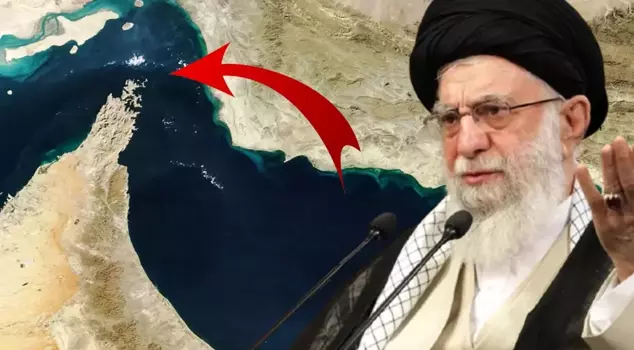
17.06.2025 18:45
Iran, which has been responding to Israel's attacks for days, is seen to have its biggest leverage in closing the Strait of Hormuz. The Strait of Hormuz, one of the world's most critical oil transit points, transports 20 million barrels of oil per day. This figure accounts for approximately a quarter of the world's oil supply, and if Iran were to close the Strait of Hormuz, the price per barrel of oil could exceed $100.
Despite the escalating tension between Israel and Iran, there has not yet been a significant fluctuation in global markets. However, experts believe that this calm could quickly give way to sharp fluctuations, especially in the event of a crisis in the Strait of Hormuz.
IRAN'S BIGGEST LEVERAGE IS THE STRAIT OF HORMUZ
As the conflicts between Israel and Iran continue, one of Iran's strongest levers, as it has repeatedly stated, is seen as the closure of the Strait of Hormuz.
20 MILLION BARRELS OF OIL ARE TRANSPORTED DAILY
The Strait of Hormuz, located between Iran and Oman and connecting the Persian Gulf to open seas, is known as one of the world's most critical oil transit points. According to the U.S. Energy Information Administration, approximately 20 million barrels of oil are transported through this narrow waterway daily.
IF THE STRAIT IS CLOSED, OIL BARREL PRICES COULD EXCEED 100 DOLLARS
On the day the conflicts began, oil prices had risen to 78 dollars per barrel. According to experts commenting to Western media, if the strait is closed, this price could exceed 100 dollars.
ABOUT A QUARTER OF WORLD OIL SUPPLY COMES FROM HORMUZ
The International Energy Agency (IEA) stated in a report published today that approximately a quarter of the world's oil supply passes through this strait, warning that "even a temporary closure of the strait would have a significant impact on global oil and natural gas markets."
Yesterday, Brent crude oil fell by 1.35% to 73.23 dollars. However, according to experts commenting to Western media, this decline is based on the assumption that the conflict will not escalate.
RBC Capital Markets analysts indicate that it is difficult for Iran to keep the Strait of Hormuz closed for a long time, but if the conflict targets oil and gas infrastructure, the market could be seriously shaken. According to RBC's assessment, increasing attacks on gas facilities, oil depots, and refineries indicate that the energy sector has become a clear target.
Source: ANKA-AA